#bertram and son
Explore tagged Tumblr posts
Text
Bertram Crow as a former Cursed Child
Here’s a small and silly theory inspired by when @hazel-not-wong mentioned Cursed Children and Bertram Crow in the same sentence, completely unrelated, and my mind went wild.
All we know of Bertram is from this line in Nevermoor:
Morrigan was surprised to see that Grandmother had cleared a premium space for her between venerable Great-Aunt Vorona, who was killed when she fell off her racehorse, and Uncle Bertram, Corvus’s brother, who had died young of a fever.
“Bertram” means “bright raven”, and a certain magical Wunder is often described as bright…
The fever could be burning up from not using Wunder, and then maybe he died from that or from the regular Squall midnight rounds?
People often question how Ornella seemed to know about the Free State and Morrigan’s fate. While I think it’s mostly because of Jupiter explaining it to her, you could possibly connect this theory to that question.
#when I say small I really meant small lol. not much to say about it. but it’s a fun idea to think about.#insert always sunny conspiracy board meme here#nevermoor#nevermoor theory#bertram crow#doubt anyone’s ever used that tag before lol#ornella: yes these are my sons ‘raven’ and ‘bright raven’. no I don’t have a favorite what are you talking about.
42 notes
·
View notes
Note
Hello! I was thinking about pride and Prejudice and wondering if the Bennets' situation would have been so different with a son. I mean, ok, no Mr Collins inheriting Longbourn, a potential husband wouldn't have to look after Mrs Bennet and her unmarried daughters as there was a son to do so. But the girls still had no dowary and no real education so they still wouldn't be seen as good matches. And having a widow mother and several unmarried sisters wouldn't help Mr Bennet junior himself to afford to marry and start a family. What do you think? (English isn't my native language so I apologise if my question is difficult to understand 😅)
Your question is not difficult to understand, and it shows that Mr. Bennet has had a bad plan all along.
I doubt the overall parenting quality of the Bennets changes at all with a son. Hopefully Little Bennet Boy (LBB) is at least sent to school/university so he can have a decent education, but I am betting the same laissez-faire method is used for the girls. So now you have a family of four/five girls and one boy who is expected to be their sole provider... great.
When LBB comes of age (21), Mr. Bennet and his son could break the entail if they both agreed to do so. Now LBB might be opposed to such a plan, after all, if the entail isn't broken he gets the entire pie, but Mr. Bennet could threaten to cut off his allowance or something to persuade him. Selling some land could raise money for the girls' dowries, making them more able to marry. LBB is hopefully left with enough land to still be a distinguished landowner.
HOWEVER
If Mr. Bennet dies before LBB is 21, he inherits everything. And then we need to know if LBB is a John Dashwood or a Mr. Darcy, because I'm pretty sure once he reaches his majority he could kick everyone out. I think it would be normal to live with his mother and sisters until he got married, but then their position in the household would become precarious.
We know that the Lucases were worried about supporting Charlotte in her spinsterhood, so I doubt LBB would be thrilled to have five sisters to support. All of this said, the whole plan was always stupid and more importantly, selfish. Mr. Bennet would rather rob the future to support his own children than save money himself.
#question response#pride and prejudice#mr. bennet#what if#they had a son#If the son was anything like Lydia the girls would be screwed#or Tom Bertram for that matter#thanks for the question!
84 notes
·
View notes
Text

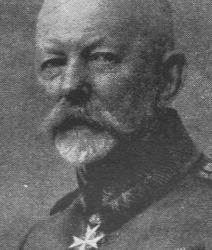
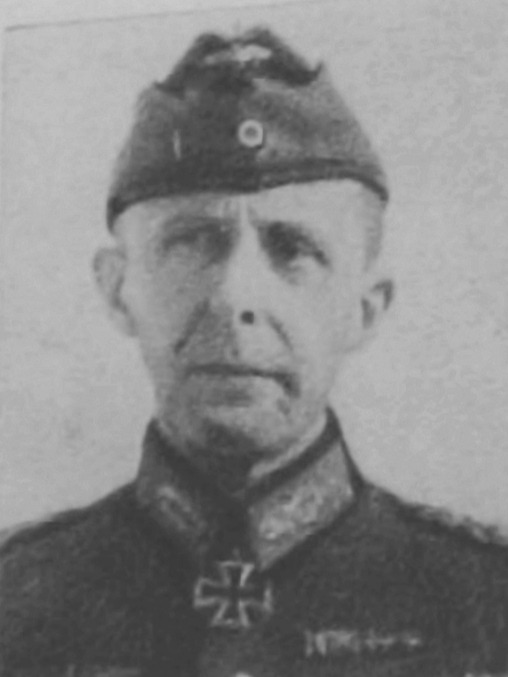
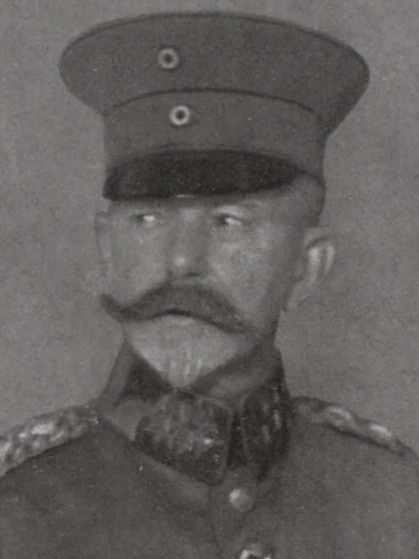

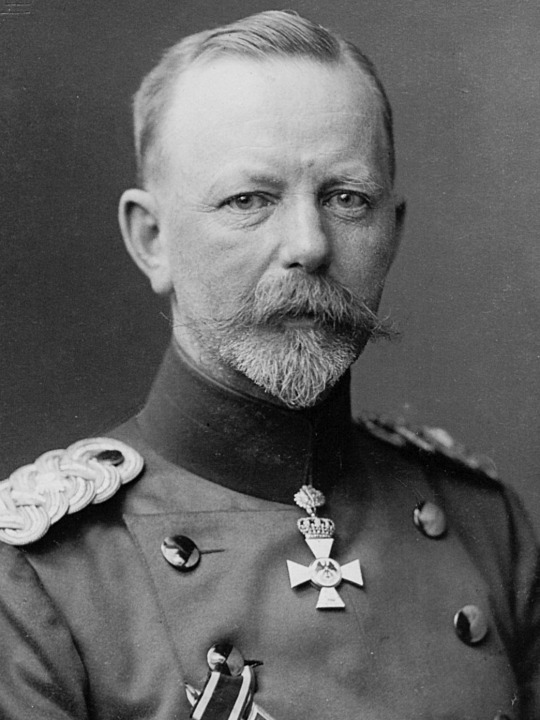
Father and son👶🏻
Fun fact: Hans-Heinrich Sixt von Armin was the fifth and last child of Friedrich Bertram Sixt von Armin. He was born just 3 weeks before his father's 39th birthday (Hans was on November 6 and Friedrich November 27), and they both shared the same parent regiment, the 4th (Queen Augusta) Guard Grenadier Regiment („Königin Augusta“ Garde-Grenadier-Regiment).
:)
#hans-heinrich sixt von armin#friedrich bertram sixt von armin#heer#3rd reich#ww1#family#father and son#yes I got it from Metapedia bc fk it's so hard to find a complete info abt these two#and their families
4 notes
·
View notes
Text
There are men across the street.
The house (and you use the term generously) that slumps there has been vacant for some time now. Ever since you moved in a couple years ago, actually. It’s an eyesore for sure. Graffiti on the walls, boards on the windows, a basketball-sized hole in the roof. The porch is the worst of it. Sagging in the middle and crumbling on the ends, stripped and moss-encrusted wood.
But today there are men there, stomping up and down the groaning steps in big, steel-toed boots.
You watch for a bit from the safety of your kitchen window, sipping coffee and batting your cat off the counter. They don’t look like a normal construction crew - wearing all black and not so much as a hammer on their belts. Three of them that you can see, one about average height, one tall, and one very tall. The tall one tags after the shortest of them often, gets pushed and shoved and snapped at it seems like.
You lose interest when the coffee runs out and your phone chimes, shooing you off to the grocery store. All three have disappeared inside by the time you saunter out, keys jingling and reusable bags in hand.
Margot says they’re renovating - likely some rich man’s retirement project. The same thing happened just down the street six months before you moved in, and now Joe has solar panels.
She postulates over the situation across the street while taking delicate bites of the cheesecake she brought over. (A test recipe for her niece’s baby shower in a few weeks. You don’t tell her that it’s too sweet and just sip your tea between bites.) She hypothesizes that one of them is this hypothetical rich man’s son, bringing some handy friends around for extra hands to work.
It sounds about as plausible as Agatha’s mutterings that they’re drug lords, so you nod along and watch your calico sneak up on your tuxedo behind her.
The garden is your own little retirement project. (You’re not actually retired, no matter what your sister snipes. But some smart money moves and a successful writing career is virtually the same with no kids and no spouse.) It’s going about as well as the renovations across the street - which is say, better and quicker than expected.
You planted clover in the yard, and are working on wildflowers in the boxes. The clover is already blooming, little flower tufts springing up for bumblebees to perch on. The wildflowers are mixed success so far, but nothing is dead yet.
You mostly just tootle around to be outside - allotted sunshine lest you become the shut in Bertram accused you of your first couple months.
The cats watch you pick at weeds from the window. Or two of them do. The other one is glaring from the fridge, angry that you tossed her back inside when she tried to slip past your ankles. (With any luck, you’ll have another sibling for them soon, but the handsome orange thing that keeps coming by at dawn and dusk is too stupid to be caught.) All three of them shift to look at something over your shoulder.
“Excuse.”
You don’t startle, thankfully. The voice may be unfamiliar, but neighbors stop by consistently enough that you’re not surprised to have your solitude interrupted.
What you are surprised by is the tall (very, very tall) man standing at the edge of your front yard. One of the renovators.
“Hi,” you say, straightening.
He points a gloved finger at you - no, not at you. Past you. At your cats.
“May I see them?” He asks in a thick German accent.
You blink, surprised and confused.
He’s a big man. Not just unusually tall, but broad as well. Muscle tugs at the fabric of his shirt, cargo pants clinging to his thighs. He also hasn’t bothered to take off the heavy duty dust mask, black sunglasses, or jacket hood obscuring his features. Looks like he’s about to rob you, honestly.
But Agatha’s uncharitable muttering about delinquent men rings like a warning toll. You’re at risk of sinking into the judgmental sea of upper-middle class suburbia, and that’s not water you want to tread.
“Sure!” You reply, ignoring his lack of introduction. “One sec.”
The cats see you dart from view and hurry to meet you at the door, meowing and yowling. You crack it open only wide enough to snatch up your precious firstborn, his leggies sticking out in abject bafflement at being airborne. You make guilty eye contact with your other two fiends before swiftly wedging the door shut again.
Then adjust your son, his little paws resting on your shoulder as you turn. Your visitor is standing right where you left him, perks up when he sees the cat bundled in your arms.
“This is Guy.”
You step closer, ignoring that shred of nervousness that being close to any man (especially one so physically intimidating) brings. To his credit, he only shuffles just enough to offer his hand for inspection.
“Guy?” he asks.
“I wasn’t going to adopt him at first, so I just called him Little Guy for so long that he thought that was his name. And then I did adopt him and now he won’t answer to anything else.”
You come by the rambling honestly - an obligate introvert until you moved to this neighborhood. There are few things you ever want to talk about with strangers, but your cats are one of them.
“He is a little guy,” the man muses.
Guy has no reservations about rubbing his fat face on the stranger’s glove, a purr kicking up in his chest. You relax as the man keeps his touch gentle and slow, that little bit of paranoid tension trickling into the soil beneath your feet.
“The other two aren’t as well behaved, I don’t trust them without harnesses on,” you add, nodding at the window.
The man glances up at them. Doesn’t seem to realize that his demise (and yours) is imminent from their glares.
“What are their names?”
You flush. “Rasputin and Shithead. I tell everyone else her name is Susan though.”
A sharp bark of laughter splits the air like a falling ax, cracks right down the middle. It makes you jump a bit - Guy is expectedly unbothered - but still you find yourself gratified. Laughing is good, it means you’re doing things right.
“Sorry,” he says, “but my friend would like that name.”
You gesture at the house across the street. “One of them?”
“Yes, the short one.”
You only just manage not to snort in amusement, but it doesn’t stop him from noticing. The mask moves, you think he might be grinning underneath.
“Does he know you call him that?”
“Not if you don’t tell him.”
You doubt you’ll have the opportunity even if you wanted to.
Someone’s at the door.
You’re only half-dressed, waist deep in laundry you have no excuse for putting off so long. Aren’t expecting company either - it’s Sunday morning, everyone should be at their various churches or visiting relatives. Can’t remember the last time someone knocked before noon on a Sunday.
Still, it was a big solid knock. The kind that makes you think it’s not the usual neighbor come by to impose on your space.
You glance down at the hem of your sweatshirt, determine it’s far enough down your thighs to be acceptable, and pad to the door.
You open it to another of the renovators. The “short” one - though you readjust that measurement quickly. He’s still taller than you, it’s just that most anyone seems diminutive compared to his friend.
“Morning,” you chime.
“We need your driveway.” His voice is low and rough, blunt. A sledgehammer to concrete. Also German-accented, you note.
“Oh,” you reply, “what for?”
He grunts. “Work.”
And you, a longtime observer of politely shaking people down for information by this point, smile without teeth.
“Oh, a work truck? It won’t make a mess will it?”
“No.”
You hum, glance at your stupid little sedan parked in the middle of the driveway.
“Okay, I’ll move — Shithead!”
You scramble to grab at the black and white blur of evil, sweeping her up in your arms as she meows in complaint. One of her back feet catches in the hem of your sweatshirt and starts to pull it up as she kicks. You curl an arm under her butt for support, but mostly she just takes the opportunity to chomp down on the meat of your thumb.
You glance at the man. “Shithead is very interested in the renovations.”
He stares. “So that is actually its name. I thought you were being rude and Konig didn’t realize.”
Ah, so that’s his name. You never did get that introduction.
“No, yeah, this is Shithead, I’m sure you can see why.”
The corner of his mouth twitches as she unlatches from your thumb, only to bite down on your wrist.
“So! The truck - when will it be here?”
“Noon.”
“Great! See you around!” You shut the door in his face without getting a name.
You threaten, not for the first time, to turn her into a pair of mittens. She responds by attacking your foot until Rasputin tackles her. Guy cries at the door, probably missing a man he met for all of two minutes.
The work truck stays through the night. Your cats spend all afternoon watching the men cross the street and back. Every once in a while, Guy puts his little feet up on the glass - Konig must be passing by.
You glance out the kitchen window only once and make hard eye contact with the third of their trio. He’s somehow even more covered up than Konig, and yet you get the distinct impression that your gaze is not welcome.
You blink and abandon the dishes for later.
The next morning, they’re already at it when you shuffle outside for the mail. Konig raises a slow hand in greeting, but visibly brightens when you smile sleepily and wave back.
You pass the work truck - the back panel is already open for them to unload wood beams and heavy-looking buckets. Construction stuff, as expected - and not messy, as promised.
You spot a red and white flag decal on the rear window. Austria, isn’t it?
“Did you just wake up?” a flat voice asks.
You squint a little through the morning sun at the man from the day before. The rude one.
You yawn. “Mhmm.”
He frowns at you, disapproval plain. Agatha will like him, you muse, shoving a hand in your mailbox. They both seem to have strong opinions about your sleep schedule.
“It is late.”
“It’s only 8.” You tug out a sheaf of envelopes and begin idly flipping through them.
“The sun is up.”
“So what?”
He clicks his tongue disdainfully. You absently click back. Then jump as a big body lands right in front of you. The third man, two wooden beams balanced on his shoulder. He makes brief eye contact with you again, then strides across the street.
“Shoo,” the rude one says. “Men at work, yes?”
You grumble. “See if I bring you cookies.”
Konig glances up from the truck bed, eyes shining. “Cookies?”
Well shit.
Rasputin keeps you company while you cook. He’s the only one allowed on the counter for any length of time. Shithead steals anything and everything, or bats at your hands while you work. Guy has the equal parts endearing and infuriating habit of touching everything with his paws.
Rasputin is the only one who will sit quietly to observe, leaning in for the occasional kiss. Today, he’s watching you bake cookies and assemble sandwiches. A dual-purpose welcome and peace offering to the three men across the street.
Is it too much? Maybe. But you’ve got nothing better to do and kindness won’t break your bank, so. Cookies and sandwiches.
You change clothes while the cookies cool on the pan - a sundress for the warm, late-spring weather. They’ve seen you in your pajamas far too much already.
At the door, you hesitate. This house doesn’t feel inhabited yet, but it also doesn’t feel right to just open the door. It’s quiet inside, so no power tools to drown you out. Making a face, you settle for a firm knock. It takes a minute or two - you think you might hear distant shouting. Then the door swings in fast and hard, nearly startling you.
It’s the third of their trio, the one you’ve yet to speak to. He’s covered head to toe, fabric around his head and face, leaving only sharp blue eyes to glare out.
“Hi,” you begin, hands thankfully too full to fidget. “I brought food.”
His eyes flick to the foil-covered platter in your hands. Then he swings the door wide and pivots on his heel.
“The cat comes too.”
Cat?
You glance down. Sure enough, Rasputin is standing by your legs, his remaining half a tail swishing. You sputter at him - didn’t even realize he snuck out - but all you get is his characteristic raspy “mah” noise. Right then.
He politely trots by your side as you enter, not even shy about your curiosity. The place is gutted, stripped walls and scuffed floors. It smells like dust and plaster and shaved wood. All the lights have been ripped out of the ceiling, exposing wires like nerve-endings.
There are two empty rooms to either side upon entry, a den and a dining room probably. The den even seems to be split into two, with one half sunk lower, accessible by a couple steps.
You follow your unexpected host through the “dining room,” which seems to be more of a satellite staging zone at the moment. There are piles of tools, stacks of materials, a little island of canvas bags. As you pass through, you notice a staircase, and even from the ground floor, you can see that it crosses over to the den on the other side.
The kitchen is stationed towards the back of the house. You try not to wince at the state of the counters. Pockmarked, blistered, scratched, burned, cracked laminate.
The floor has already been pried up to reveal smooth concrete. You scan it quickly for anything that could hurt Rasputin’s feet before entering.
Your neighbor gestures for you to set the platter down on an empty patch of counter, so you do, peeling back the foil.
“Cookies and sandwiches,” you explain just to have something to say.
“Why?” he asks.
You shrug. “To be nice.”
He stares. You blink back.
“I mean, you don’t have to eat them,” you add. “It would just be a waste.”
Rasputin chooses that moment to leap onto the counter, taking a moment to steady himself once he’s landed. With only one eye and a crooked leg, he’s not the most acrobatic or graceful of your babies, but he makes do.
To your shock, though, once he’s gained his bearings, he makes like he’s going to eat one of the sandwiches.
“Ras,” you gasp, surprised. “Absolutely not!”
The little shit doesn’t even resist when you nudge him away, just settles on his haunches, staring at your neighbor. And, to your confusion, your neighbor grunts.
“Konig! Krueger!” he barks.
That must be the rude one’s name. Krueger. You file that tidbit away.
“What’s your name?” You ask. “No one’s told me.”
He eyes you - dare you say suspiciously - letting the silence stretch.
“Nikto,” he rasps finally.
You finish introducing yourself just as the other two enter. Konig’s down to just the dust mask today, while Krueger seems to have donned one for himself.
“You,” Krueger says.
You arch your eyebrows back. “Me.”
“What brings you here?” Konig interjects, much friendlier.
“Well, you really seemed to want cookies yesterday, so I thought I’d bring some with lunch as a welcome to the neighborhood.”
He practically shoves Krueger to get to the kitchen. You politely get out of the way so he can indulge in your offering without getting trampled.
“Danke schön,” he says, scooping up a sandwich.
“No problem,” you answer, smiling.
Krueger deigns to sidle closer, inspecting the platter with a keen eye. Still, you think you see a bit of appreciation in them before he snatches up one of the sandwiches. For some (concerning) reason, you’re gratified by that. (You’ll just blame it on your habit of feeding ferals and strays.)
“I also wanted to give you three a little warning…” Three pairs of eyes pin you in place. You try not to grimace. “Everyone on this block is nosy as hell. They will literally peak in your yard and check your mail.”
“The mail?” Konig asks, appalled.
“Yeah, I started using a PO Box,” you sigh. You’ve only got so much sanity before you start taking sniper shots with a water gun.
“We will handle it,” Krueger says.
“I’m sure,” you demure. “Anyway, that was all. You can drop the platter off later - or I can come get it. It’s not like you’re far.”
You start looking for Rasputin, only to find him perched on Nikto’s broad shoulder. The man doesn’t even seem bothered by the claws digging through his shirt, scratching a finger at the calico���s cheek.
“Huh,” you say, surprised.
Nikto glances at you, pauses. “What?”
You snort at the bluntness, but grin. “Usually I’m the only one allowed to pet him.”
That’s three for three. Well, two and a half. Shithead could have been trying or escape or go for the ankles for all you know. But Krueger seemed to like her, so that counts for something.
“C’mon my little tank, let’s go,” you coo, approaching.
Rasputin nuzzles his face against Nikto’s once, gives him a parting mraw, then leaps into your waiting arms.
“Bye, guys!” You call, waving over your shoulder as you head for the door.
Konig is the only one to respond with a polite, “see you!” But you don’t take it to heart.

Next
Masterlist
#cod#thoughts™️#my writing#fanfiction#reader fic#dark fic#konig#konig x you#konig x reader#nikto x reader#sebastian krueger#krueger x reader#cod nikto#konig cod#neighbor!reader
4K notes
·
View notes
Text
Character Analysis – Edmund Bertram
I have a better opinion of Edmund Bertram than much of the Jane Austen fandom has, and I am going to try to explain why. It comes down to several things:
1) He probably makes more sacrifices for people other than a woman he is in love with than any other Jane Austen hero.
He has to sacrifice a great deal of the economic condition he would normally expect in order to enable Tom’s debts to be paid, and Tom doesn’t even care about this or feel guilty for it. At no point does Edmund show hostility to or resentment of his brother over this, nor does he ever bring it up to Tom to guilt him, not even when Tom is doing something Edmund considers immoral and disrespectful to their father; Edmund makes his arguments against the play on the merits, as best he can. Nor does he bring it up to Tom when the (relative to expectations) small income he can expect is one of the principal barriers to him marrying the woman he loves.
He goes out of his way to be kind to Fanny from the start (seriously, how few 16-year-old boys would take the time to listen and be kind to and help a ten-year-old girl? Most 16-year-old boys are dreadful, from my experience of high school.)
He sells one of his horses to buy one that Fanny can ride, when riding is recommended for her health. This is no small thing, given how frequently-used horses were in that time. This isn’t like, say, selling one of your three cars; it’s more like choosing to give up either your computer, tablet, or cell phone, and never (or, well, for many years) have a replacement again. Lending the horse to Mary Crawford for a couple days is a fault, but to me a fairly minor fault in light of this.
He is determined that he will live in his parsonage rather than – as would be done by many members of the clergy in that day – live at Mansfield Park and ride over once a week to preach. It is important to him that he do his job well and live among the people he is ministering to, and he is not tempted to try to modify his parsonage into a much fancier house when Henry Crawford tries to talk him into it. Nor is he willing to pursue a career that Mary Crawford would be more favourable to. He genuinely cares about his vocation as a pastor, and is willing to make sacrifices both of love and of comfort in order to do so. I don’t generally have a high opinion of the 19th-century Anglican clergy, Edmund is genuinely dedicated.
He tends to Tom gently and fairly continuously when Tom is sick, despite Edmund having plenty of worries of his own. The book says, “when able to talk, or be talked to, Edmund was the companion he preferred.” Edmund put off a proposal to the woman he loves in order to tend to Tom – and that tending is a duty that would, I think, usually have been considered as one for the women of the family. It really highlights how Edmund is the only Bertram with real feeling and care for his family members.
In light of this, I think that some of the things readers heavily criticize him for, like losing track of time one afternoon when he’s on an outing with his girlfriend, are comparatively minor and forgiveable. Edmund seems to me to put more concerted effort into doing the right thing than most other men in Jane Austen.
2) His ability to act is constrained relative to most other Austen heroes by the fact that he is a younger son, living at home, with two parents and an aunt still living. He does not have the authority to spend Sir Thomas’ money, and filial duty means he cannot outright denigrate Mrs. Norris to Fanny. The only other Jane Austen heroes who do not have their independence are Edward Ferrars and Henry Tilney (and both of them have rather different relationships with their family).
This means anything he does for Fanny, he has to do at his own expense – as when he sells one of his horses to buy one for her; as when he offers to stay with his mother while the others go to Sotherton so that Fanny can go. It’s the most effective way he has of addressing the way they treat her: oh, so you think it’s okay if this happens to Fanny? Well then, it’s happening to me instead. In the case of the Sotherton expedition, it quickly flips people to seeing that as unacceptable, making them bother to find another (fairly simple) solution that they hasn’t cared about finding before.
In a few ways, Edmund is placed in a more feminine role in the story than any other male leads: his principal good qualities are a strong moral sense and the provision of emotional support and care; he’s the bedrock of his family in the same way that Elinor Dashwood is for hers; he’s held back from the person he loves by economic precarity; and he seems to have a limited social circle outside his family (the drinking-and-gambling habits common in young male society among students of his class and time likely didn’t suit him).
In short, Henry Crawford does not care for and value Fanny Price more (or nearly as much) as Edmund does; his financial and familial position simply make it easy for him to do things, at insignificant cost to himself, that Edmund cannot do without behaving in a way that would, in his time, be deeply disrespectful to his parents and aunt. Edmund knows Fanny far better, understands her far better, and when he gives her gifts (like the necklace) it’s ones she likes and appreciates.
3) I don’t blame Edmund for being in love with Mary Crawford for much of the book because, frankly, she’s an appealing person, especially given Edmund’s narrow social circle. The combination of wit, liveliness, comsistent good humour, interesting conversation, and beauty (plus harp-playing) that she beings are not something the Bertrams encounter every day. He wants to think better of her than she is because her other characteristics are so appealing. I think that’s a very human reaction when in love. (Elizabeth Bennet falls for Wickham and makes excuses for him based on little more than good manners, good looks, flattery, and a mutual dislike of Darcy, and people don’t criticize her nearly as much.)
By the same token, I don’t blame him for being oblivious to Fanny’s love for him because absolutely everyone is and Fanny is very deliberately and determinedly concealing it. And given that, liking to spend somewhat more time with your girlfriend than your bestie is also, I think, quite forgivable in a young person.
4) On one area of frequent critique, that Edmund doesn’t listen to Fanny on several notable occasions (mainly about the Crawfords), I think their dynamic over several years is an important consideration. It’s somewhat a flipped version of Emma in that you’ve got a mentor-mentee relationship between the leads, but in this case it’s the mentor who is mistaken and the mentee who is right. Edmund has been supporting and advising and encouraging Fanny for many years, and many of those times he was right. For example, she was afraid of learning to ride when she first started with a pony, and Edmund encouraged her and comvinced her to do it, and she came to love it.
“Ah! cousin, when I remember how much I used to dread riding, what terrors it gave me to hear it talked of as likely to do me good; – (Oh! how I have trembled at my uncle’s opening his lips if horses were talked of) and then think of the kind pains you took to reason and persuade me out of my fears, and comvince me that I should like it after a littl while, and feel how right you proved to be, I am inclined to hope you may always prophesy as well.”
Fanny also, in another conversation, describes herself to Edmund as “foolish and awkward” and he insists “you have not a shadow of either, but in using the words so improperly.” The narrative is clear about how consistent and important his care, sympathy, praise, and advoacy have been for her, for many years:
Edmund’s friendship never failed her: his leaving Eton for Oxford made no change in is kind dispositions, and only afforded more frequent opportunities of providing them. Without any display of doing more than the rest, or any fear of doing too much, he was always true to herinterests,and considerate of her feelings, trying to make her good qualities understood, and to conquer the diffidence which prevented their being more apparent; giving her advice, consolation, and encouragement.
Kept back as she was by every body else, his single support could not bring her forward, but his attentions were otherwise of the highest importance in assisting the improvement of her mind, and extending its pleasures. He knew her to have a quick apprehension as well as good sense, and a fondness for reading, which, properly directed, must be an education in itself…he recommended the books which charmed her leisure hours, he encouraged her taste, and corrected her judgement; he made reading useful by talking to her of what she read, and heightened its attraction by judicious praise.
The nature of this relationship also helps explain some of Edmund’s reaction to Henry Crawford’s proposal: while Edmund is very much at fault for disregarding her doubts about Henry Crawford’s morality, he is very used to Fanny being nervous and anxious about things that, once she is used to the and no longer afraid of them or uncertain of her abilities, she enjoys. (Such as riding.) So he is seeing her reaction in part through that frame.
The basic difficulty in Mansfield Park that affects perceptions of Edmund is that it is occurring at a moment of transition: the first time Fanny has been eclipsed in Edmund’s life, combined with a transition from him being a mentor and guide to them becoming equals, and her in fact surpassing him in perception and being willing to go against even his opinion in her choice to reject Henry Crawford. It’s the story of Fanny growing up, whereas Edmund (the mentor) is put in the place of Emma (the mentee) in Emma, in being mistaken in key assessments of people, and biased into seeing what he wants to see. This reversal is what allows them to be on equal footing, and for Edmund’s benefit from Fanny’s companionship to be as apparent or more apparent, to everyone, as his from her.
However, this means that for most of the novel we’re seeing Edmund and Famny’s relationship at the weakest point it’s ever been, which can’t help but affect readers’ attitudes to him; and I do think it’s a flaw that we don’t get an actual conversation at the end between Edmund and Fanny that deals with his recognition of his errors in judgement and the value of her perception and principle.
269 notes
·
View notes
Text
19th Century Vampire Lit I'm Gonna Read
Because I've lost my mind.
Most of these texts were found with the aid of these two posts. I did not include any of the stories listed as "not technically about vampires," except for "Let Loose," because it concerns a specter seeking blood, and "Vampirismus," because it's called "Vampirismus."
A strikethrough indicates that I've already read the work. Bold text indicates that I cannot find an English translation, whether online or for purchase. If you know of English translations of any bolded titles, please let me know.
Thalaba the Destroyer, Robert Southey (1801)
"The Vampire," John Stagg (1810)
The Giaour, Lord Byron (1813)
"A Fragment of a Novel," Lord Byron (1816)
"The Vampyre," John William Polidori (1819)
The Black Vampyre, Uriah Derick D'Arcy (1819)
The Vampire Lord Ruthwen, Cyprien Bérard (1820)
The Vampire, or The Bride of the Isles, J.R. Planché (1820)
The Vampire, Charles Nodier (1820)
"Vampirismus," E.T.A. Hoffman (1821)
Smarra, or Demons of the Night, Charles Nodier (1821)
"Wake Not the Dead," Ernst Raupach (1823)
The Vampire, or the Hungarian Virgin, Étienne-Léon de Lamothe-Langon (1825)
Der Vampyre und seine Braut, Karl Spindler (1826)
La Guzla, ou Choix de Poesies Illyrique, Prosper Merimee (1827)
"Pepopukin in Corsica," Arthur Young (1827)
The Vampire, Heinrich Masrschner and Wilhelm August Wohlbrück (1828)
The Skeleton Count, or the Vampire Mistress, Elizabeth Caroline Grey (1828)
Der Vampyre, oder die Totenbraut, Theodor Hildebrand (1828)
"The Vampire Bride," Henry Thomas Liddell (1833)
Clarimonde, Théophile Gautier (1836)
The Family of the Vourdalak, Aleksey Tolstoy (1839)
The Vampire, Aleksey Tolstoy (1841)
"The Vampyre," James Clerk Maxwell (1845)
Varney the Vampire, or The Feast of Blood, James Macolm Rymer (1845-1847)
The Pale Lady/The Carpathian Mountains/The Vampire of the Carpathian Mountains, Alexandre Dumas (1849)
"The Vampyre," Elizabeth F. Ellet (1849)
The Phantom World [select chapters], Augustin Calmet (1850)
The Vampire, Alexandre Dumas (1851)
The Vampires of London, Angelo de Sorr (1852)
The Dead Baroness/The Vampire and the Devil's Son, Pierre Alexis Ponson du Terrail (1852)
"The Vampire," Charles Pierre Baudelaire (1857)
Knightshade/The Shadow Knight, Paul Féval (1860)
"The Mysterious Stranger," Karl von Wachsmann (1860)
"Metamorphosis of a Vampire," Charles Pierre Baudelaire (1860)
The Vampire of the Val-de-Grace, Leon Gozlan (1861)
"The Vampire; Or, Pedro Pacheco and the Bruxa," William H.G. Kingston (1863)
The Vampire/The Vampire Countess, Paul Féval (1865)
Vampire City, Paul Féval (1867)
"The Last Lords of Gardonal," William Gilbert (1867)
Vikram and the Vampire, Sir Richard Francis Burton (1871)
"The Vampire Cat of Nabéshima," Algernon Bertram Freeman-Mitford (1871)
Carmilla, Joseph Sheridan Le Fanu (1872)
"Ghosts," Mihail Eminescu (1876)
Der Vampyr – Novelle aus Bulgarien, Hans Wachenhusen (1878)
Captain Vampire, Marie Nizet (1879)
"The Fate of Madame Cabanel," Eliza Lynn Linton (1880)
After Ninety Years, Milovan Glišic (1880)
"The Vampyre," Owen Meredith (1882)
"The Vampire," Jan Naruda (1884)
"Manor," Karl Heinrich Ulrichs (1884)
"The Vampyre," Vasile Alecsandri (1886)
The Horla, Guy de Maupassant (1887)
"Ken's Mystery/The Grave of Ethelind Fionguala," Julian Hawthorne (1887)
"A Mystery of the Campagna," Anne Crawford (1887)
"Romanian Deaths and Burials-Vampires and Werewolves," Emily Gerard (1888)
"The Old Portrait," Hume Nisbet (1890)
"The Vampire Maid," Hume Nisbet (1890)
"Let Loose," Mary Cholmondeley (1890)
"The Vampire," Felix Dahn (1892)
The Parasite, Sir Arthur Conan Doyle (1884)
"The True Story of a Vampire/The Sad Story of a Vampire," Count Eric Stenbock (1894)
"A Kiss of Judas," Julian Osgood Field (1894)
"The Prayer," Violet Hunt (1895)
"Good Lady Duncayne," Mary Elizabeth Braddon (1896)
"The Vampire of Croglin Grange," Augustus Hare (1896)
"Phorfor," Matthew Phipps Shiel (1896)
Dracula, Bram Stoker (1897)
"Dracula's Guest," Bram Stoker (1914*)
The Blood of the Vampire, Florence Marryat (1897)
*"Dracula's Guest" was first published in 1914 but was written either concurrent to or before the writing of Dracula.
I'm going to be honest. When I began, I thought there were four nineteenth century vampire stories. Five if you count Dracula's Guest. I've made a huge mistake.
#vampires#vampire fiction#vampire literature#19th century fiction#19th century literature#Gothic fiction
197 notes
·
View notes
Text
i'm really interested to get to know bertram better in future books because one thing that struck me about his interactions with both meredith and vesta is that he seems to really fucking hate it when parents have the opportunity to help their kids but just... don't. vesta's parents could've taken him up on an offer for a better mobility aid that would vastly improve their daughter's quality of life, or even bought a better one somewhere else, but instead they ignored him and didn't even bother to ask vesta what she wanted. meredith's parents could've gotten her out of the wintersea republic (or at least tried) and they instead turned her back on her and guaranteed she'd stay there forever.
and maybe i'm reading too much into it, but i do wonder if that made him think about his mom, who could've done the easy thing, the selfish thing, but instead did the hard thing and sent her son away, knowing she'd never see him again, knowing he might hate her for it, in order to save his life and give him a future. and maybe that's why, despite their differences, he did help jupiter with morrigan; not just because of their shared unit, but because bertram knows, whatever he may think of jupiter personally, jupiter would move mountains for any child under his care. and that's something bertram respects.
#bertram crow#nevermoor spoilers#nevermoor#silverborn spoilers#jupiter north#ornella crow#meredith crow#vesta rinaldi
80 notes
·
View notes
Text
Medieval Names for male
Alaric: German for "ruler of all."
Aldous: Italian and German for "old, wealthy."
Archibald: German for "genuine, bold, brave."
Arne: Old Norse for "eagle."
Arthur: Celtic for "bear; strong man.""
Bahram: Persian for "victorious."
Bard: Gaelic for "poet" or "singer."
Bartholomew: Hebrew for "son of furrow” or "son of Ptolemy."
Benedict: Latin for "blessed."
Bertram: German and French for "bright raven."
Björn: German and Scandinavian for "bold as a bear."
Burchard: English for "strong as a castle."
Cassian: Latin for "vain."
Cathasach: Gaelic for "brave."
Charibert: German for "glorious warrior."
Conrad: Old German for "brave counsel."
Crispin: Latin for "curly."
Cyprian: Greek origin name that means "man of Cyprus."
Daegal: An Anglo-Saxon name with Scandinavian roots that means "dweller by the dark stream."
Drogo: Old German name for "to bear" or "to carry."
Drustan: Believed to be derived from the Celtic and Gaelic word "drest" which means "riot."
Dustin: Old English for "dark stone" and German for "valiant fighter." It also means Thor’s stone.
Elric: English for "wise ruler."

#writerscommunity#writer things#writers#writeblr#on writing#writblr#writers on tumblr#creative writing#writing#writersociety#write#writings#writers and poets#writer#women writers#ao3 writer#amwriting#writers community#writing community#writers life#writers block#female writers#writer stuff#writer problems#fanfiction writer#fanfic writer#writer community#writer on tumblr#writers of tumblr#writers on ao3
228 notes
·
View notes
Text
december jily bingo: slugclub's infamous christmas party @jilychallenge
"Hey, Evans."
Lily turned away from her boring conversation with Bertram to face James' smug grin. He was decked out in expensive, stylish ruby red robes and seemed to have a shiny red hue around his eyes that made them even more dazzling and charming than usual, but his hair was just as messy as ever and his glasses were placed slightly crooked on his nose.
"Potter", Lily huffed, she placed her drink down on the table nearby her and folded her arms.
James' eyes quickly took in her outfit; a muggle emerald green halter gown paired with white platform heels. She had let her curly red hair down from her usual updo's, and had green eyeshadow around her eyes, making the bright green colour even more stunning.
James' grin seemed to grow even wider as he gestured between them, "Red and green huh? Perfect christmas match."
Lily scoffed, "Usually you chastise me for wearing slytherin colours."
James shrugged, "Well, I can't deny it's your best colour... even if it's the same colour as those slimy snakes. You make it look good."
"Are you a stylist now?" Lily snorted.
He winked, "Only for you, Evans."
Lily rolled her eyes, "How'd you even get invited? I know you're the son of a great Potioneer and all, but Professor Slughorn hates you after since you destroyed his classroom and his prized letter from Minister Minchum with that water prank."
James laughed, "Well, only I got the blame for that one so he still sends Sirius invitations every year. Usually he just bins them but I practically begged him to attend with me as his plus one."
Lily frowned, "Why would you want to? You hate this kind of stuff?"
"Yeah," James shrugged, "But I wanted to dance."
Lily held back a laugh but James saw the smile on her face.
"Dance?" She questioned, "You're here to dance?"
James grinned and began to jig slightly to the calm, harp music playing quietly in the room.
Lily burst out in laughter, and James began to do the hustle, a dance move Peter had showed him a few months back.
"Care to dance?" He held a hand out to her, ignoring the strange looks he was getting from other students.
Lily eagerly took his hand and joined him.
65 notes
·
View notes
Text


Propaganda...
Sir Thomas Bertram (2007): NIce big house, curly hair
Mr Weston (2020) : Mr Weston is a family man, he’s a committed husband. He’ll set you up with his son, he’ll personally apologise when his son blows you off. He uses humour to diffuse awkward situations. He’ll throw a ball in your honour. He loves dancing. Truly just the loveliest dilf in all of Jane Austen.
He's gorgeous in an unintimidating way, without being snobbish or vain. He's super friendly and likeable and welcoming to everyone.



#janeaustensilverfoxes#hotjaneaustenmenpoll#sf round one#mr weston#emma 2009#sir thomas bertram#mansfield park 1999
47 notes
·
View notes
Text
You were looking for Darcy, weren't you? They aren't there! No one gets to be Georgiana's little sister because I feel like everyone would pick that.
For the purposes of this exercise, your dowry would be equal to your sisters', so 20k for another Bingley or Crawford daughter, 1k if you are a Dashwood etc.
#jane austen#polls#pride and prejudice#mansfield park#northanger abbey#sense and sensibility#emma#persuasion
173 notes
·
View notes
Text
Many of the Gothic novels that were popular in the late 18th century feature orphaned heroines, so it's noteable that Jane Austen's heroines all have parents present in their lives (though some are motherless) but all those parents are woefully inadequate, and our heroines are often good people in spite of, rather than thanks to, the parenting they've received.
The Bennets are both bad parents in different ways. Mrs. Bennet has no handle on her emotions and lacks any good sense, while Mr. Bennet plays favourites, mostly ignores his children except to tease them, and hides in his library during difficult times. They have totally failed to provide for their children's futures, and anything besides good marriages could leave them destitute. Sir Walter Elliot basically forgets his two younger daughters exist, unless they are looking particularly well or particularly bad, and has not been a good enough steward of his estate to ensure they can remain in their childhood home. Mrs. Dashwood is a self indulgent sentimentalist who cannot take action without Elinor's guidance. Mrs. Moreland thinks the cure for a broken heart is a moral pamphlet (and Mrs. Allen thinks of nothing but muslins), while the Tilney's have a tyrant they are a bit scared of to contend with, and Emma? She's basically parenting her father. Mansfield Park probably contains the worst parenting: Mr. and Mrs. Price seem to only actually care about their sons, while the Bertrams are completely uninterested in Fanny's mental, physical, or emotional health and have spoiled their own children dreadfully, while the Crawfords have been taught to be mercenary by their surrogate parents.
Bad parenting is the downfall of a lot of supporting characters - Lydia Bennet, Maria Bertram, Elizabeth Elliot. Even Marianne Dashwood is almost undone by the habit of indulging her emotions too deeply, which she's learned from her mother. It's noteable that most of our other heroines are drawing their moral lessons from someone other than their primary caregiver. Lizzy and Jane have the Gardiners, Anne has Lady Russell, Catherine has the younger Tilneys, Emma has Mrs. Weston and Mr. Knightly. It's interesting that Fanny and Elinor have no real moral guide outside of themselves and are both the most thoughtful and reserved and have the most to hide from others in their stories. I'd say they also read the most of all the Austenian heroines, so one assumes reading some of the moralists.
Everyone having parents but their parents all being stupid and useless is a great subversion of the Gothic trope. Girls, you're going to have to get your moral education elsewhere or find it within yourselves because your parents don't know shit about fuck. And honestly, that's probably still great advice.
#not sure where I'm going with this#jane austen#pride and prejudice#persuasion#northanger abbey#emma#sense and sensibility#mansfield park#19th century literature
33 notes
·
View notes
Text
Deseos
Vi a mi ex marido en la calle. Estaba sentada en las escaleras de la nueva biblioteca. Hola, mi vida, dije. Habíamos estado casados veintisiete años, así que me sentía justificada. Él dijo, ¿Qué? ¿Qué vida? La mía desde luego que no. Y yo, Bueno. No discuto cuando hay verdadera discrepancia. Me levanté y entré en la biblioteca a ver cuánto debía. La bibliotecaria dijo que treinta y dos dólares en total, y lleva usted debiéndolos dieciocho años. No negué nada. Porque no entiendo cómo pasa el tiempo. He tenido esos libros. He pensado con frecuencia en ellos. La biblioteca sólo queda a dos manzanas. Mi ex marido me siguió a la sección de devolución de libros. Interrumpió a la bibliotecaria, que tenía más que decir. En varios sentidos, dijo, cuando miro hacia atrás, atribuyo la disolución de nuestro matrimonio al hecho de que nunca invitaste a cenar a los Bertram.
Es posible, dije. Pero, en realidad, si recuerdas: primero, mi padre estaba enfermo aquel viernes, luego nacieron los niños, luego tuve aquellas reuniones de los martes por la noche, luego empezó la guerra. Luego, era como si ya no les conociésemos. Pero tienes razón. Debería haberles invitado a cenar. Entregué a la bibliotecaria un cheque de treinta y dos dólares. Confió plenamente en mí, se echó a la espalda mi pasado, dejó limpio mi expediente, que es exactamente lo que jamás harán las otras burocracias municipales y/o estatales. Pedí prestados de nuevo los dos libros de Edith Wharton que acababa de devolver, porque hacía mucho tiempo que los había leído y ahora son más oportunos que nunca. Los libros eran The House of Mirth y The Children, que trata de cómo cambió la vida de Estados Unidos en Nueva York en veintisiete años, hace cincuenta. Una cosa agradable que recuerdo muy bien es el desayuno, dijo mi ex marido. Me sorprendió. Nunca tomábamos más que café. Luego recordé que había un agujero en la pared del armario de la cocina que daba al apartamento contiguo. Allí siempre tomaban tocino ahumado, curado con azúcar. Daba una sensación majestuosa a nuestro desayuno, aunque nosotros nunca llegáramos a quedar ahítos. Eso fue cuando éramos pobres, dije. ¿Es que alguna vez fuimos ricos?, preguntó. Bueno, con el paso del tiempo, a medida que nuestras responsabilidades aumentaron, ya no pasamos necesidades ni apuros. Tú lograste resolver los problemas económicos, le recordé. Los niños iban de colonias cuatro semanas al año y llevaban ponchos decentes, con sacos de dormir y botas, como todos los demás. Tenían un aspecto espléndido. Nuestra casa estaba caldeada en invierno, teníamos unos cojines rojos muy lindos, y otras muchas cosas. Yo quería un barco de vela, dijo. Pero tú no querías nada. No te mortifiques, dije. Nunca es demasiado tarde. ¡No!, dijo con gran amargura. Puedo conseguir un barco de vela. La verdad es que tengo el dinero suficiente para una goleta. Me van muy bien las cosas este año, y creo que me irán aún mejor. En cuanto a ti, es demasiado tarde. Tú nunca desearás nada. A lo largo de aquellos veintisiete años mi ex marido había tenido la costumbre de hacer comentarios hirientes que, como el desatrancador del fontanero, se abrieran paso oído abajo, bajaran por la garganta y llegaran hasta mi corazón. Y entonces desaparecía y me dejaba con aquella sensación de opresión que casi me ahogaba. Lo que quiero decir es que me senté en las escaleras e la biblioteca y él se fue. Eché un vistazo a The House of Mirth, pero perdí interés. Me sentía sumamente acusada. Qué le vamos a hacer, es verdad, ando escasa de deseos y de necesidades absolutas. Pero la verdad es que hay cosas que quiero. Quiero, por ejemplo, ser una persona distinta. Quiero ser la mujer que devuelve esos dos libros en dos semanas. Quiero ser la ciudadana eficaz que cambia el sistema escolar y comunica al Comité de Presupuestos los problemas de este querido centro urbano. Había prometido a mis hijos poner fin a las guerras antes de que fueran mayores. Hubiera querido estar casada para siempre con la misma persona, bien mi ex marido, bien mi marido actual. Cualquiera de los dos tiene suficiente personalidad para llenar una vida, lo cual, si bien se mira, tampoco es tanto tiempo. En una vida breve no puedes agotar las cualidades del hombre ni meterte debajo de la roca de sus argumentos. Esta mañana, precisamente, me asomé a la ventana para mirar un rato la calle y vi que los pequeños sicomoros que el ayuntamiento había plantado soñadoramente un par de años antes de que nacieran los niños habían llegado a su plenitud. ¡Bueno! Decidí devolver aquellos dos libros a la biblioteca. Lo cual demuestra que, cuando surge una persona o un acontecimiento que me conmueve o me hace darme cuenta de mi propia valía, soy capaz de obrar de manera adecuada, aunque sea más conocida por mis comentarios afables.
Grace Paley, Deseos en Cuentos completos, Anagrama. Traducción de J. M. Álvarez Flórez y Ángela Pérez.

21 notes
·
View notes
Text
THE HOGWARTS CLASS OF 1978 - pt 2
SIRIUS BLACK III



Name - Sirius Black III
Blood Status - Pureblood
Date of Birth - 3rd November 1959
House - Gryffindor
Academic Achievements - Beater on the Quidditch Team
He spent 12 years wrongfully imprisoned in Azkaban before being killed by his own cousin
Cannon
Older brother to Regulus Black
Cousin to Bellatrix, Andromeda and Narcissa Black
He was tall
Did not have a close relationship with his family
Is the only member of the Black family to be sorted into Gryffindor
Although he later considered himself an "idiot" during his time at school, Sirius, along with James, were immensely popular. Teachers respected his intelligence (though not his behaviour) and girls adored his dark handsome looks
He put up permanent sticking charms off Gryffindor banners, as well as pictures of Muggle girls in bikinis and motorcycles and pictures of him and his Gryffindor friends on the walls of his room to emphasise his difference from his family and annoy his parents
Sirius and James once used an illegal hex on a boy named Bertram Aubrey that caused his head to grow twice it's original size
At the age of sixteen, Sirius finallt broke away from his Pure blood family and took refuge with James and his parents
Sometime in 1979 Sirius' father and brother both died
Sirius never found out the true reason why Regulus died but he suspected that it was because he got cold feet after becoming a Death Eater
He was the best man at James and Lilys wedding and was the godfather to their only son
He was wrongfully imprisoned in 1981
By 1985 Sirius' mother died, leaving the Black house elf Kreacher alone in the house
He escaped Azkaban in 1993 and his escape was on Muggle and Wizarding news
He was killed by his cousin during the Battle of the Department of Mysteries
His name was cleared after his death
Headcanons
Gay
Started dating Remus Lupin during their fifth year
Loved Muggle music and his favourite band was Queen
He was the tallest Marauder
He had multiple tattoos, his favourites was one of the moon cycle and one of his arm that read "let it be" in his own handwriting. He got it after Lily Evans introduced him to the Beatles song of the same name
Whenever girls asked him out he felt bad about letting them down and didn't want to tell them the real reason why (because he's gay) so he would lie and tell them that James was interested in them and that he couldn't dishonour the bro code. Sirius immediately regretted his actions when those girls would then all go and hover around James so he changed his plan and started telling them that Frank was the one interested in them (not taking into account that Frank had a girlfriend)
He was a music snob. For parties he decided what music was played and only him
Along with his housemates he was also friends with Frank Longbottom, Alice Fortescue, Marlene McKinnon, Dahlia Fleur-Peri and Camelia Solis but not really anyone else
Before he left his family he was originally promised to Juliette Wilkes. Despite him being a Gryffindor Juliette still held onto hope that Sirius would rejoin his family. She was the girl who was "eyeing him hopefully" during the OWL exam
Sirius was the most intimidating out of the Marauders
He hardly swore. Swearing was always frowned upon in his family and even after being disowned and running away he never found the point in it. His pet peeve was people who swore just because they could
He wanted to become a Healer after leaving Hogwarts
The reason why Sirius and James hexed Bertram Aubrey was because of Dahlia and Camelia. Camelia and Bertram used to date but during the summer of 1975 Bertram cheated. When Dahlia (Camelias best friend who was also in love with her) found out about this she asked James and Sirius to prank Bertram to get revenge. James and Sirius never liked Bertram anyway and they got a large sum of muggle money and a years worth of alibi's for it
The reason why Sirius had short hair in the OOTP photo was because during the war he lost a bet to Frank and had to cut it short as punishment







#trying my hardest to keep the cannon info and headcannons short and sweet#but there's sooooo much we know about sirius in cannon#aces class of 1978#the marauders#harry potter#the marauders era#marauders#sirius black#wolfstar#james potter#remus lupin#frank longbottom#regulus black
36 notes
·
View notes
Text
The Weeping Monk x Fem!Reader : Forged Of Fire Chapter 3

+++++++++++++++++++++++++++++++++++++++++++++++++++++
Story Summary: Raised under the tiranny of your own family, and forced to steal to earn your keep, you struggle to survive. Born from a Fey mother, and a Manblood father who wanted only sons, you are forced to hide your Fey side. When you are ordered to steal from Father Carden by your half-brother, Cassian, your life spirals out of control and you find yourself at the mercy of the Weeping Monk. The life you knew changes drastically when Cassian betrays you in the cruelest of ways. A trade is made, a promise is broken, and a debt must be paid.
Chapter Title: The Trade
Notes: I'm so glad people are liking it so far ;_;
Warnings: Angst. Hurt. Trauma bonding. Intrafamily violence. Depression. Self-harm. Suicidal thoughts. Violence. Torture. Gore. Pining. Trauma. Self-Flagellation. Manipulation. Strong Language. Blood. Misogyny. PTSD. Spicy and smut parts. Slight redemption arc. Lima/Stockholm syndrom-ish. Childhood trauma.
Other warnings: Jealousy. Forbidden Love. Romance. Slow-burn Found Familly-ish. Comfort. Fluff. !SMUT and SPICE!
Word count of this fic: +250K
Chapter: 3/47
+++++++++++++++++++++++++++++++++++++++++++++++++++++
You reached Ravenwick with the wagon not long after midday, at least the ring would please your father. It was unfortunate that Ava and Bertram had fallen to the blade of the Weeping Monk, but you couldn’t forget how they had abandoned you. From Cassian you had expected it, but Bertram? No. Not from him. Once again you had faced the cruel reality that no one thought you were worth saving. You rode the wagon into the village and stopped at the manor. With a few calming deep breaths you crawled off of the wagon and headed into your home. You found both Cassian and Aldith in the great chamber, they were discussing what had happened and by the sound of it Cassian had not been home long.
“Father…” You walked into the room and saw them look at you as if they had seen a ghost.
“You’re alive?!?” Cassian blurted out, sounding almost appalled.
“Explain yourself.” Aldith was just as confused.
“The Monk let me go.” you quietly said.
Cassian couldn’t believe his ears. “He killed the others, tried to kill me, but let you go?!? What did you do?”
You could feel the atmosphere take the wrong turn. “I didn’t do anything.”
He didn’t believe that. “You must have done something. Did you let him use you?”
The insinuation was horrible to hear.
“Cassian.” Aldith stopped him.
It was surprising that Aldith stopped him, but then again it must be uncomfortable for him to get that thought about his daughter into his head too.
“It’s her fault I nearly died! If she hadn’t been so disobedient and distracting, none of this would have happened!” Cassian was making you into the scapegoat so your father wouldn’t put blame on him.
Aldith approached, and the closer he got the more you realized how angry he truly was. “Your brother is right. They have seen your faces, if the Church finds out who you are, you will have cost me everything!”
You flinched heavily when he grabbed you by the arm.
He was sneering the words at you, “You failed me again. Why do I even keep you alive?”
The blow you received to your stomach send you to your knees, tears born from pain streamed down your cheeks. Begging was no solution, it only made you look weaker to them and angered them further. The ring in your pocket could have lessened their fury, or it wouldn’t have made a difference at all. So you said not a word about it being in your possession, perhaps one day it’s value could pay for a few meals when you were denied of them again. Aldith ruled this village with an iron fist and you fell at it’s cruel treatment once again.
That night you laid in bed, arms wrapped around your sore abdomen. The bruising near your eye was painful, but bearable, it wasn’t the first time one of them had blackened your eye. With nowhere to go and no one to trust you feared running away again, and if they caught you… Maybe you weren’t meant to escape this life, maybe you had given up on living all together.
~“Why do I even keep you alive?”~
Aldith’s question kept running through your head and you concluded that you had no answer for it. There was no reason.
~~~♡~~~♡~~~♧~~~♡~~~♡~~~
Days had passed before you felt well enough to walk again. Your first walk was to the healer in the village, the concerned looks of villagers no longer bothered you as much as they once had. The healer of the village was an older woman who never stopped seeing you as the child once covered in bruises who had been tossed into her home to be healed for the first time all those years ago. You didn’t mind that she talked to you in a motherly fashion, it helped calm you down while she prepared an ointment she put on your bruises and a vial for the pain.
You were on your way back to the manor when Cassian found you and told about the new errand Aldith had planned. An abbey was his next target, and considering the place would notice the presence of a man among a lot of nuns you were burdened with the task. Not a word was said from your side while Cassian told you what was expected of you. Infiltrate the abbey, steal anything valuable you could find and hand them back to him. You were to stay there for a few days, to make the most of the situation in terms of stealing. Strangely, you didn’t mind. It would let you be away from home for a while and maybe your bruises would be healed by the time others could be added to the lot.
Back at the manor, a tunic and veil were handed to you to wear for the abbey before you were put on the wagon. Aldith stood outside and watched you while Cassian rode the wagon out of the village, that look of him told you not to fail this task. Cassian said nothing to you during the journey to the abbey. He had told you all you needed to know. One of your father’s mercenaries had notified the Abbess of a new Sister arriving at the abbey today. You.
Cassian stopped the wagon at a distance from the abbey and as you walked past the front of the wagon to walk the rest of the way, he warned, “Do not fail us again. Earn your keep.”
You said nothing and walked to the abbey. The Abbess was stern but kind, you were shown the dormitory room you were to sleep in and the refectory where you would be receiving daily meals. She did not ask where the bruise near your eye came from, but she did mention that everyone was free to call upon the healers in the infirmary should it be necessary. You had thanked her for that information. By evening, your stomach was filled and you had been able to wash yourself. You shared a room with another woman who said not a word to you, she preferred to spend her free time in prayer until she fell asleep that night. It was odd how quickly you were able to fall asleep on the first night in a new environment, but that was what happened. You had hoped to use the night to find something worth to steal, but your exhaustion had disagreed with that idea.
In the morning, when Sister Edith was explaining what chores you were assigned to, a ruckus stopped her. A large group of paladins had arrived at the abbey, one of them had been wounded severely and was brought to the infirmary. You were grateful for the veil now, because Father Carden was said to be present too. Not long after their arrival, all attempts to try and stay discreet and unnoticed went to waste when all the nuns of the abbey were summoned to gather in the barn at the order of Father Carden.
Sister Edith walked you there, and when you noticed the Weeping Monk standing in the barn beside Father Carden you immediately tilted your head down and let the veil cover you in it’s shadow. You heard the sisters around you whisper about a Fey being present among them and you feared your secret had somehow been exposed. No, no it couldn’t be. The only one who knew you were Fey was you, you bore no visible markings and wore no attire that was often associated with Fey kind, you were raised as Manblood and blended in with them effortlessly.
Once everyone was present in the barn, the Monk walked between the rows of Sisters. You kept your head down, but saw him approach one of the nuns and inspect her for Fey marks. Right away your eyes scanned the barn for possible exits. The Sister gasped in shock at the invasive action, the Monk pulled down her veil to see if she was perhaps of the Faun Folk clan, who were known to cut off their antlers to hide their nature. Another, closer to you, was inspected just the same. He had quickly inspected her shoulder blades through her tunic for any signs of wings she could have cut off. Then, of all the Sisters present and all the ones he still could have chosen to inspect, he stopped in front of your nose…
You kept your head down, still in the small hope that he would not recognize you. That hope died when his fingers closed around your chin and he forced you to look up. Recognition flashed in his eyes instantly, fear in yours. He held back from speaking, you could tell by how he discreetly looked to his side to determine whether or not another would hear what would be said. The barn was packed with people, any word said could be heard. He breathed out through his nose sharply, then proceeded to make you undergo the same inspection the others had received. He did not pull the veil down but did use his fingers to feel behind your ears.
“I warned you.” he whispered into your ear whilst he felt your shoulder blades for markings.
Your were rooted to the spot at what that meant. But then you noticed how the Monk suddenly stilled and tensed, you heard him draw in a deep breath near your neck. His hand wrapped around your throat and forced you to expose more of your neck to him. His hold on you grew stronger, you could hear the quiet gasps of the Sisters when they saw him inspect you in such an intimate way. Surely this was against the vow those of the Church were known to take?
The Fey scent was very vague, so hard to detect that he could only sense it close to your skin, but it was present. However, your scent was different from the one of the Wolf-Blood Witch who was somewhere in the abbey as well.
You felt his hand wrap around your arm, possibly to pull you towards Father Carden and your doom.
“Where’s the new girl?” A Sister suddenly spoke up.
The Monk turned his attention to her immediately, “Who?”
“The new one. Alice.” This Sister did not seem to fear him. “Showed up last night with cuts all over.”
“Last night?” Father Carden asked.
The Sister nodded in confirmation. The Monk hurried out of the barn in pursuit of this ‘Alice’ who must have been the Fey they were looking for. And you wondered how long it would be before he’d return and rat you out to the priest.
~~~♡~~~♡~~~♧~~~♡~~~♡~~~
Chaos had erupted and spread through the abbey. Father Carden had ordered for the Abbess to be taken away for punishment, she was said to have been lying about the presence of this ‘Alice’ the paladins were looking for. It was too dangerous to stay there any longer than you already had but you could not leave the place empty-handed, so you used that chaos distracting everyone to sneak into the dormitories to search for jewels and coins. Anything that could be of worth. Room after room you searched, and whilst you searched the fourth the door was kicked open. You spun on your heels and came face to face with the Monk once again. He shut the door behind him and saw you swallow down the fear it caused. He was not civil like the last time you had spoken, it was easy for you to see that he was in a foul mood because of this ‘Alice’ escaping. His sword was drawn right away as he stalked closer to you.
You tried to plead. “Please-”
He grabbed you by the throat and pinned you to the wall, the sword was at your stomach. “First you steal from a priest, and now from an abbey.”
With shallow breaths you tried to breath, avoiding the tip of the sword he held pointing against you.
“Are you Fey?” he demanded to know.
If he was sure you were Fey, you would already be dead, that much was certain. You shook your head, denying it.
The Monk was interrogating you, “Did you see the Fey, this ‘Alice’? What does she look like?”
“No.” you said. The blade came to your throat. You closed your eyes from fear. “I swear I didn’t see her!”
He was quiet for a moment to determine whether or not it was the truth, then he continued his questioning, “Is that sellsword telling you to steal for him again?” The blade moved away from your throat when you didn’t answer and he made you turn your head to the side. “Is that what happened to your eye?”
He was trying to puzzle the truth together but your silence persisted.
“What are you?” his voice grew firmer.
“I don’t know what you mean.” you feigned ignorance.
That pretense made him hold you still against that wall while he got close enough to dip his nose down and keep it close to your neck. You froze completely, was he smelling you?!?
“What. Are. You?” he asked again, still inhaling in your neck.
You needed to get away, to escape before he figured out the truth. You felt around, finding a small candle holder on the dresser beside you.
“I’m not Fey.” you nearly whimpered.
“Liar.” he breathed out.
You hit him against the head with the candle holder and bolted out the room when his grip on you faltered. Thanks to the tour of the abbey that the Abbess had given you, you knew where the closest exit was. Running did not seem to attract much attention, because others were doing so in the chaos too. You ran into the forest, as fast and as far as you could. And then you noticed the familiar wagon in the distance and remembered that you had agreed to meet there with Cassian around this time to bring him what you were able to steal already so they wouldn’t find a stash of missing things in your possession. You ran up to the wagon, wanting to get away from the abbey as fast as you could before the Monk would find you again. That haste led to you not paying much attention to your surroundings, you collided with someone hard and fell on the ground not a moment later. To your horror, you felt the leaves under your hand and how your skin began to react to them. You pulled your hand away but the damage was done. Cassian was gaping at you, at your skin and how it had transformed by the contact with one simple leaf.
“Cassian…” You didn’t like the look he had in his eyes.
“You’re Fey?!? How?!” He was disgusted.
Your voice was shaking terribly, “Mother was…”
“Yours was! Mine wasn’t!” He grabbed you from the ground, “No wonder father never speaks of her, you are a monstrosity!”
He started to pull you along with him, pushing branches out of the way to do so, and you were too shaken to even try and fight him on it.
“You filthy mutt, I know why you never told anyone! You knew what father and I would do if you turned out to be Fey!” He was fuming.
It dawned on you where he was leading you. The abbey.
“No, Cassian, please!!! What are you doing?!” You tried to break free. It felt like your nose suddenly exploded and you were crying before you could even process what had happened. He had hit you. Not a slap, no, a true closed fist punch. Blood ran down your nose.
He was still pulling you along and through the sobs and tears you saw and heard the shocked nuns. You were already back at the abbey with him. The paladins were wary of him immediately, it must have looked odd for them to see a man drag along a nun like that.
“Where’s Father Carden?” he loudly asked them, “I have something he needs to see.”
Father Carden had heard the ruckus and came out of the abbey to see what was going on, beside him stopped a stunned looking Monk. Cassian’s grip on your arm got so strong that you could feel the healing bruises burn. Father Carden frowned, until he recognized you from when you stole from his tent. The Monk whispered something to him, undoubtedly informing him of the fact that Cassian was part of that theft as well.
“Seize them both.” Father Carden commanded the paladins.
Cassian drew his sword and held it to your throat. “I wouldn’t.”
Father Carden and the Monk were both frowning at the threat, why would they care if he cut your throat?
Cassian began to barter. “I bring her to you, Father Carden, I believe this will pardon my actions against the Church.”
“How so?” Father Carden was growing angrier.
“A moment of your time. Alone. And you will understand why she is worth what I ask for.” Cassian said.
Father Carden smiled eerily, gave a nod to his Monk then one to Cassian. You were dragged back to that barn, the sword never left your throat. The Monk had given you a glare as Cassian walked you inside. You had attacked him, of course his mood had gotten even fouler.
“Well then.” Father Carden began. “Why do you believe she is worth sparing your life for?”
Cassian knew the threat he was facing. “I just discovered that my half-sister is part Fey, I believe that you are interested in ones like her.”
The Monk glared even worse upon hearing the truth about your connection to Cassian. You struggled when Cassian pushed you to your knees and held your arm up, and then you saw what he got out of the pocket of his jacket. The leaf was pressed into your palm and your skin reacted to it instantly. Father Carden’s eyes widened.
The Monk got pale. Your markings were almost a mirror of his own.
Cassian must have pulled a leaf from that ash tree, that you had fallen under, whilst pushing the branches out of the way. He couldn’t have known that those were the only kind of leaves your markings responded to, it was just sheer dumb luck on his part. You couldn’t believe he could betray you so, it broke something inside of you, the last piece of you was shattered. Real tears of defeat rolled down over the tear-like markings they had seen appear. The Monk stood still as a statue, aware what this meant.
Not only did this ‘sellsword’ know that he was Fey, you had known it all along and never said a word of it. He knew it was so, because he could see how you had looked up at him to see his response to the truth.
Cassian nodded to the Monk as he spoke to Father Carden. “You have one already, in exchange for forgiving me you will get another.”
The Monk’s eyes were like ice, but that look was not meant for you, it was aimed at Cassian.
“You know more than you should. Why should we let you live?” Father Carden asked him.
Cassian moved the blade to your throat, ready to take your life with it. “Because you can accept this offer, or I’ll cut her throat.”
Father Garden stopped him with a gesture of his hand when the sword threatened to cut into your skin.
“Cassian…” You looked up at your kin, the broken pieces in you wanted to hold some hope that your half-brother still had a heart under that cruelty. “Please, don’t do this.”
“Shut up!” he barked.
Father Carden must have thought you to be worth this trade. “You give us the girl and we will look past your crimes against us.”
With a hard shove forward, you landed on your hands.
Cassian made an arrogant bow, “It was a pleasure trading with you, Father Carden.”
He left the barn, he left you… Blood dripped from your nose down into the straw that covered the floor.
“Take her to a wagon, make sure she does not escape.” Father Carden told his loyal Monk.
The Monk followed the command immediately, he took hold of your arm, pulled you from the ground and walked you out of the barn whilst Father Carden followed behind.
Taglist:
@ourlazydetectivekitten @the-great-adventures-of-me @linkpk88 @fxrchxldws @elenaoftheturks @slytherlight @beananacake @crystallizedtime @moonlightaura03 @angrygardendeer @have-aheart @5am-cigarette @arcanenature @thewinterskywalker @notyourwildestdream @coloursforyourportrait @koressecretidentity @nike90 @n1ghtlux @rachlovesactors @luckyzipperscissorsbat @morena-doing-stuff @the-fangirl-diaries @gipsydanger17 @heavenly1927 @phantasmalbeiing @labyrinthonmymind @asarcastic-thiamstan @rainyv-skies @stclairesplace @katjusja @isla-bell-blog @beebeerockknot @sahvlren @lancedoncrimsonwings @weird123abc @elizabeth-holland24 @kissingandromeda
Please let me know if you want to be added or removed from the taglist of this story. Using this old list from the previous fic.
#weeping monk#cursed netflix#lancelot x reader#weeping monk x reader#weeping monk x you#cursed lancelot#the weeping monk#the weeping monk x reader#lancelot#cursed weeping monk#lancelot reader#you x lancelot#you x weeping monk#reader x lancelot#daniel sharman character#daniel sharman
43 notes
·
View notes
Text
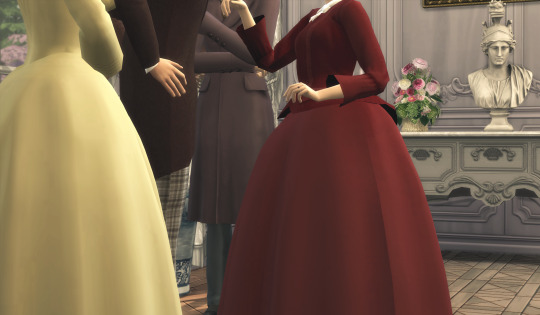
Manoir de Solomont: 01 Juin 1850, 10:30
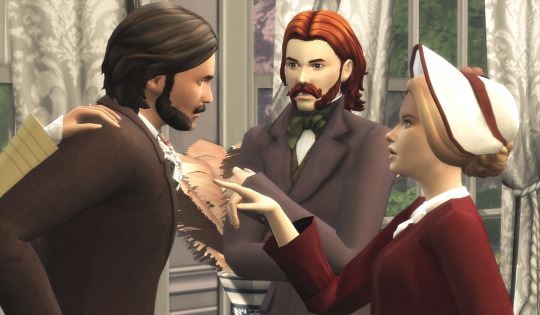
Duchesse de Liroux: How dare you! You honestly think you can stand here and deny us access to our daughter?
Duc de Solomont: I've said it once, and I'll say it again. She is not here.
Duc de Liroux: You honestly expect her to believe you?
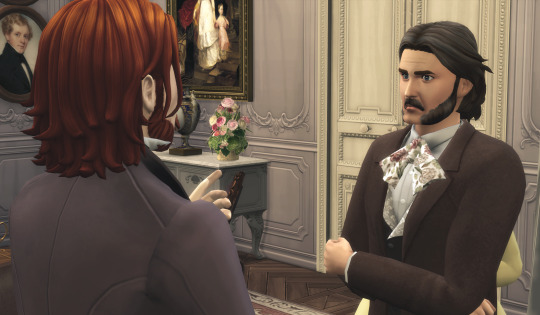
Duc de Solomont: Should you really be questioning me of anything? Especially considering all you've done?
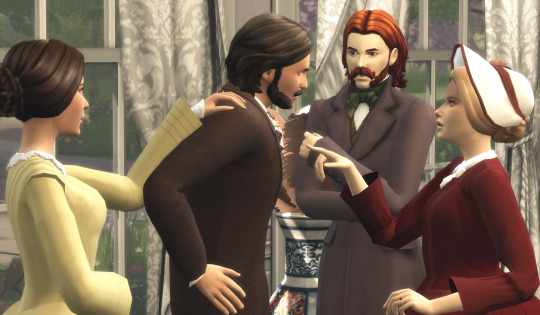
Duchesse de Solomont: Bertram-
Duchesse de Liroux: I know she ran off with your vaurien of a son! When she was already intended for-
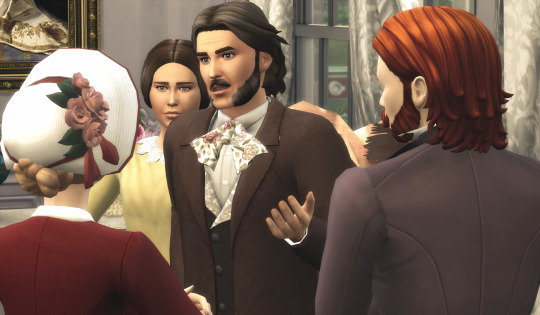
Duc de Solomont: [Harsh Laugh] If you truly believe le Monseigneur has any desire for her, you are indeed more delusional than I thought. And that's not even considering how Gaspard would-
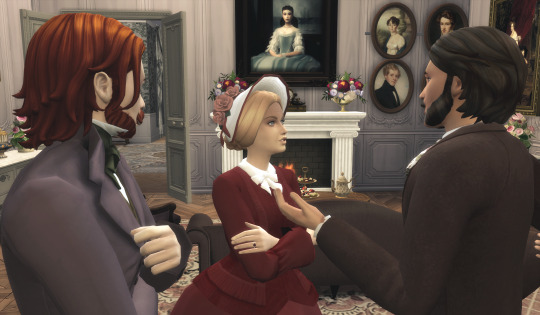
Duchesse de Liroux: We are not here to discuss and relive history. Tell me where my daughter-
Duc de Liroux: Emilie. Enough.
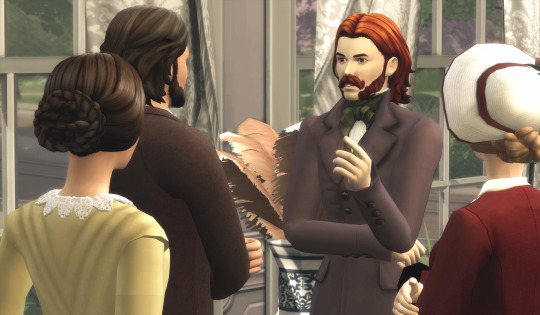
Duchesse de Liroux: Cyprien, you cannot be-
Duc de Liroux: Assez. It is clear there will be no resolution here. We will deal with the matter tonight. Aurora is bound to reappear this evening, and if we have to involve le petit roi, then so be it.
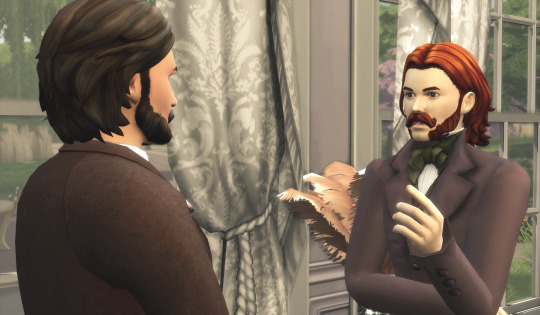
Duc de Liroux: This is far from over, Bertram. Bonne journée. Emilie. We're leaving.
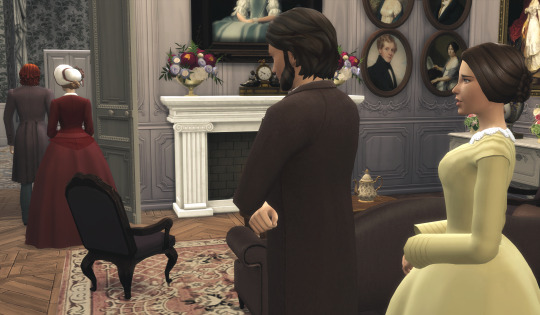
[Duc et Duchesse de Liroux Leave]
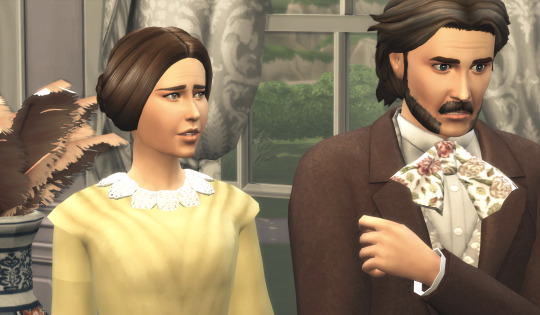
Duchesse de Solomont: What should we do? We cannot keep them from attending, but the last thing we want is for them to cause a scene.
Duc de Solomont: We stay the course, Lydie. I'll try to have a private word with Gaspard. Perhaps if we can persaude him to help us ensure the marraiage cannot be annulled, we'll be able to protect them.
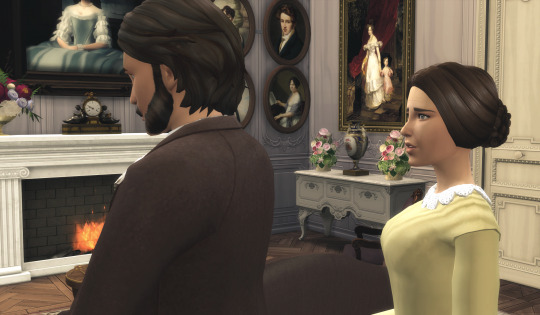
Previous | Beginning | Next
#thornolia chapter two#ts4#sims 4#historical sims#sims 4 historical#sims 4 royal#sims 4 royalty#sims 4 royal simblr#sims 4 royal family#ts4 historical#ts4 royal#ts4 royalty#ts4 royal family#ts4 royal simblr#thornolia#thornolia nobles#manoir de solomont#behind the scenes#Duc Bertram Rousseau#Duchesse Lydie Rousseau#Duc Cyprien Aubert#Duchesse Emilie Aubert#Victorian Sims
31 notes
·
View notes